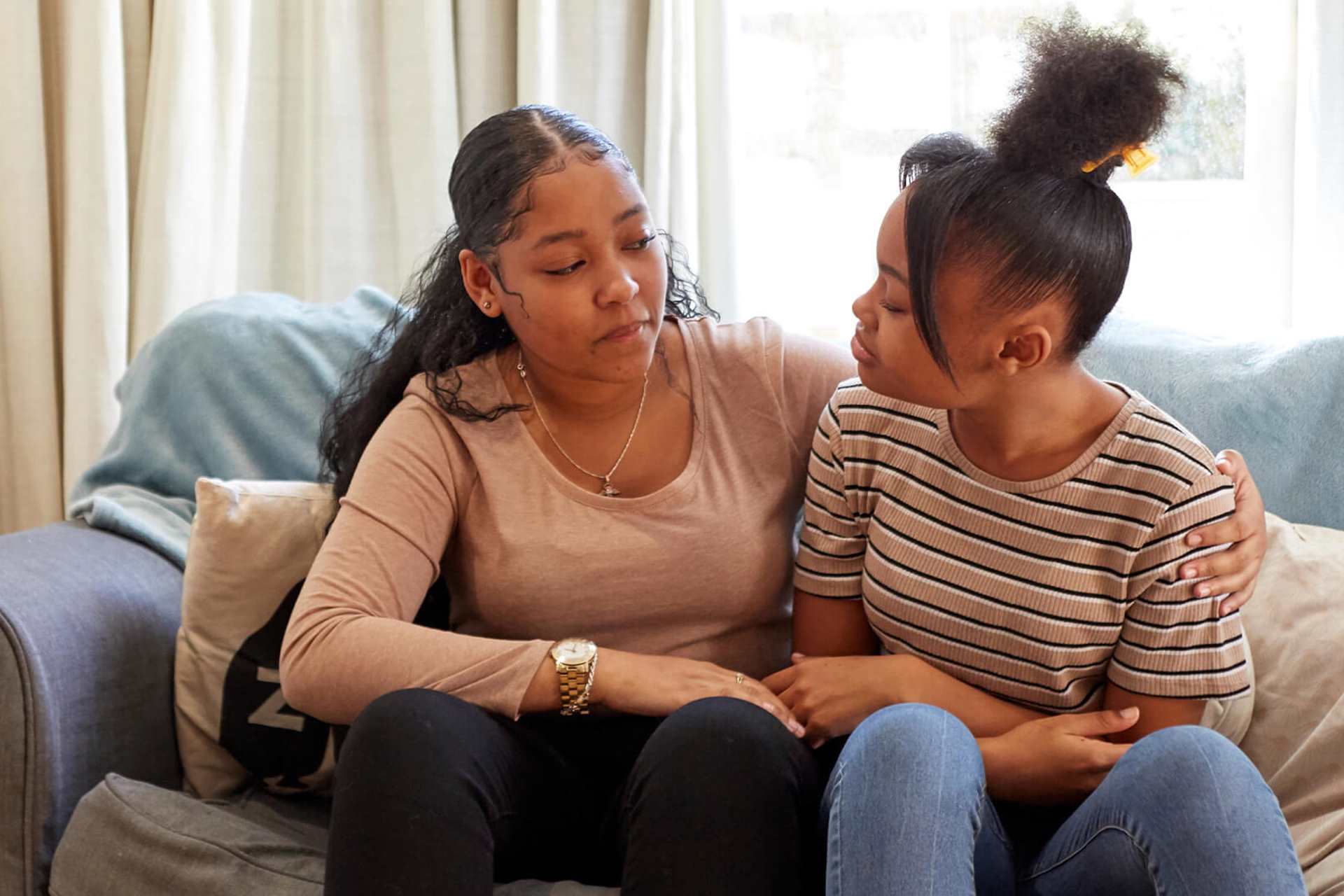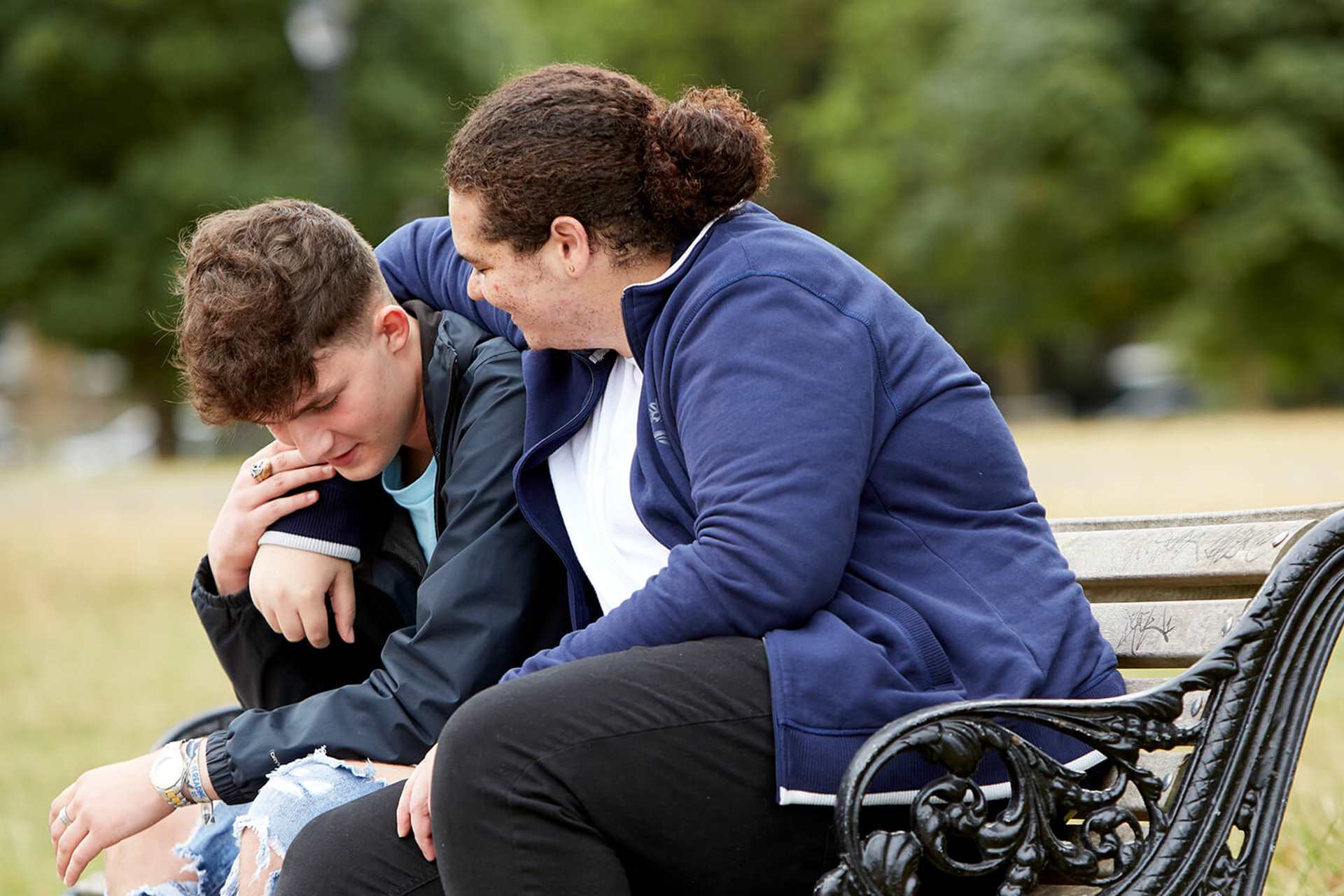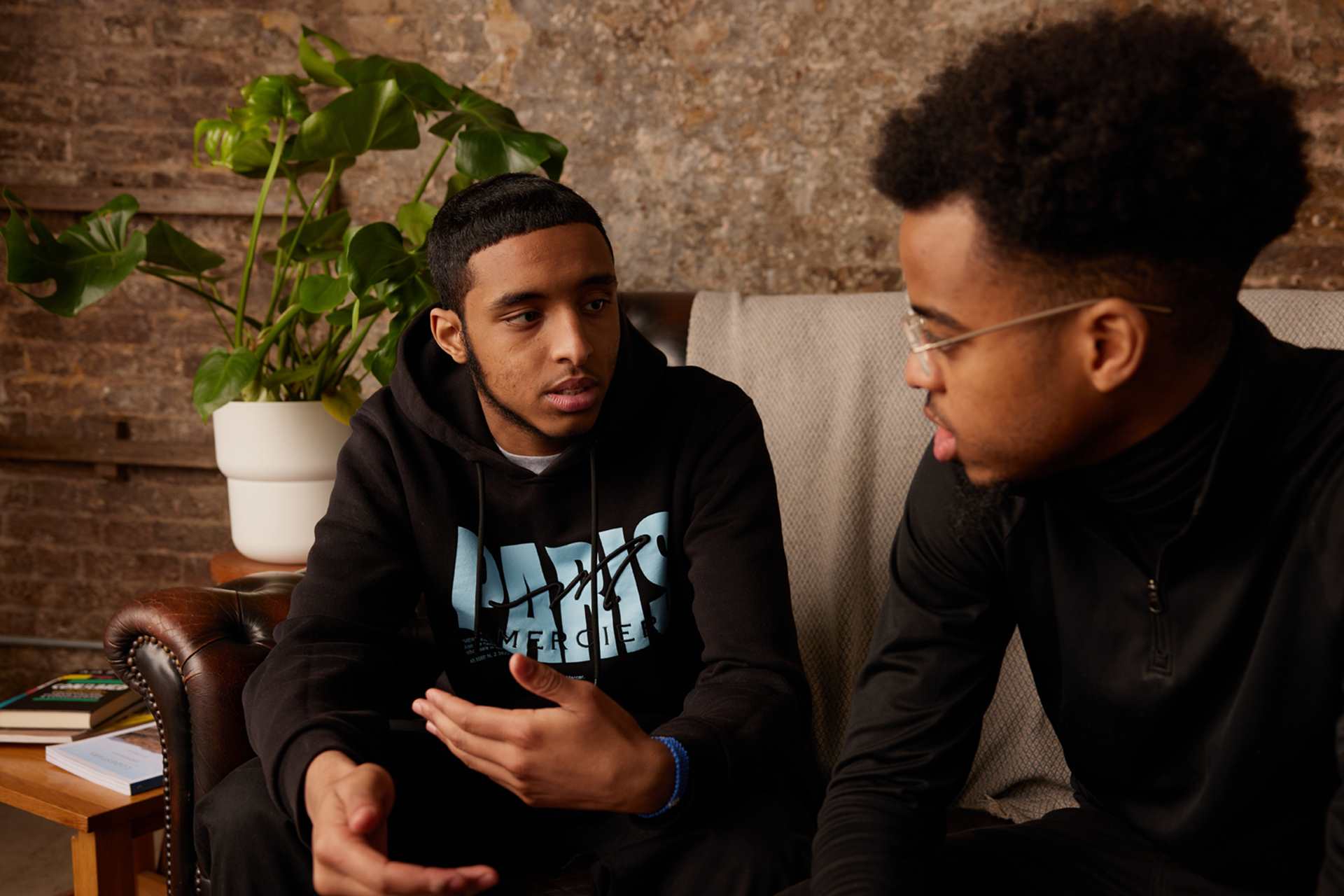Topics mentioned: supporting a friend with their mental health
About: We all want to be there for our friends when they need us, but what should we do if they open up to us about their mental health struggles? Laura shares her tips.
It's okay if you can't always be there for your friends.
We all want to support our friends and help them in the best way possible. However, when a friend says they are currently struggling with their mental health, it can be difficult to know what to do or say.
You may be worried about upsetting them, making the situation worse or find that constantly being there for your friend is damaging to your own mental health.
Here are some tips to help you support your friend in a way that is healthy for both of you.
Assess whether you are able to support them
It's okay if you can't always be there for your friends. We all have our own life challenges and if you are currently struggling with your mental health, it may be best to not take on too many other people's problems.
If you do not feel up to it, you may want to signpost them to other people they could talk to (e.g. other friends, family members, school staff) or organisations that can help.
To be a good listener, you must put all your other thoughts, worries and judgements to one side.
Listen to your friend
This sounds easy. After all, we are hearing people talk every day of our lives. However, to be a good listener, you must put all your other thoughts, worries and judgements to one side.
Try not to interrupt or rush the person talking. It’s best to have the conversation with them when you do not have somewhere to go or something to do soon after. This can add to the pressure and make them feel unheard or abandoned.
You should also try to stay calm. Though it is natural and perfectly okay to get a little upset, getting too emotional may prevent them from continuing to open up for fear of hurting you. This is why it is so important to check if you are ready to listen before you start the conversation.
Asking your friend what they would like from you will help you to support them in the best way.
Ask what they would like from you
Sometimes people just want to get something off their chest. Other times they want reassurance. Some people want advice or signposting. Asking your friend what they would like from you will help you to support them in the best way possible and make sure they do not leave feeling unsatisfied or frustrated.
Try to be as genuine, honest and gentle as possible when responding to your friend. In dealing with problems, it can be helpful to ask yourself these two questions:
Talk to an adult
If your friend is in danger (at risk of harming themselves or others) or you do not feel like you can deal with the problem yourself, tell a responsible adult. This could be a teacher, school nurse, youth worker or any other adult who could get in contact with your friend or find a way to help them.
If possible, let your friend know that you need to talk to an adult about this and explain why. Your friend may be reluctant and ask you not to, but, ultimately, the most important thing is to ensure they are safe (even if that involves going against their wishes). A good friend will eventually realise that you just wanted the best for them.
Ultimately, the most important thing is to ensure they are safe.
Check up on them
If you feel able to, keep asking them how they are and take the time to truly listen (repeating the cycle). Mental health problems do not go away after one conversation. They can also be incredibly isolating. Checking up on your friend can make them feel a little less alone.
Helping a friend is all about supporting them while ensuring you stay mentally healthy yourself. It doesn't matter how much you can help. If you care about your friend, you're already amazing and you're doing an amazing job.
Try to be as genuine, honest and gentle as possible when responding to your friend.
Where to get support for your friend
If your friend needs more help than you feel you can provide by yourself, you can direct them to our find help guide for more information, tips and suggestions on where they can get support.
Where to get help
However you're feeling, there are people who can help you if you are struggling. Here are some services that can support you.
-
Childline
If you’re under 19 you can confidentially call, chat online or email about any problem big or small.
Sign up for a free Childline locker (real name or email address not needed) to use their free 1-2-1 counsellor chat and email support service.
Can provide a BSL interpreter if you are deaf or hearing-impaired.
Hosts online message boards where you can share your experiences, have fun and get support from other young people in similar situations.
- Opening times:
- 24/7
-
Youth Access
Provides information about local counselling and advice services for young people aged 11-25.
Put in your location and what you need help with into their 'Find help' search, and see what services are available in your area.






